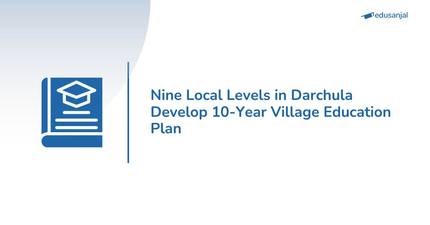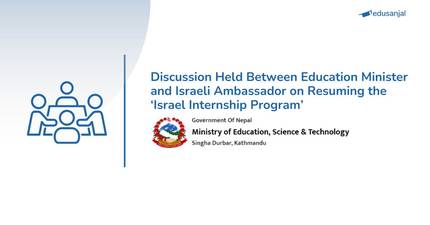Finance Minister Barsaman Pun presented the budget for the fiscal year 2081/82 in the joint session of the Federal Parliament. The government of Nepal has announced a budget of eighteen trillion, sixty billion, and three hundred crore rupees, 6.2 percent more than the current fiscal year and 21.56 percent more than the revised budget. This year, the government introduced a budget of 17.5131 trillion rupees.
According to Article 119 of the Constitution of Nepal 2072, the Finance Minister is required to present the annual estimates to the joint session of both houses of the Federal Parliament, detailing the estimated revenue, the necessary expenditures from the Federal Consolidated Fund, and the expenditures to be incurred according to the Federal Appropriation Act.
The Ministry of Education, Science, and Technology has received a budget of Rs. 2 trillion 3 billion 66 crore rupees for the upcoming fiscal year. The government has allocated this budget for the implementation of various educational programs in the coming fiscal year.
Major Highlights in Education
63. Arrangements will be made for students studying information technology at the undergraduate and postgraduate levels to intern in IT-related industries.
64. All ward centers, community schools, and health institutions will provide broadband internet services.
The Foundation of Prosperity: Quality Improvement in Education
158. A well-mannered and ethical society will be developed through quality and life-skill-oriented education. The right to basic education for children will be ensured. Skill-based and technical education will be expanded to create employment opportunities. Higher education will be made research-based, innovative, and professional.
159. Student identity cards will be linked to the event registration and social security management information system to streamline student enrollment, transfer, and scholarship programs. To improve the quality of early childhood development education, 1,500 early childhood development teachers will be included in boot camps.
160. Local products will be used in the mid-day meal program implemented in grades 1 to 5. The mid-day meal allowance provided in Humla, Jumla, Mugu, Dolpa, and Kalikot districts of Karnali Province has been increased.
In line with integrated kitchens, Mega Kitchens will be established in one local government unit of each of the seven provinces next year. A budget of Rs. 8 billion 39 crore has been allocated for the mid-day meal program that benefits 3 million students from early childhood education to grade five.
161. To facilitate access to education for children from extremely disadvantaged and marginalized communities, the scholarship program currently offered from grades 9 to 12 has been expanded to cover grades 6 to 12. This will benefit an additional 45,000 students. A budget of Rs. 60 crore has been allocated for all types of scholarships awarded at the school level.
162. The public school transformation program will improve the quality of education in schools. A program called "Learn from Friends, Teach Friends" will enhance student learning and develop educational leadership.
Career counseling programs will be conducted in schools to help students choose their future studies and careers based on their interests and abilities. One lakh students will benefit from this program. A budget of Rs. 87 crore has been allocated for the President's Educational Reform Program.
163. Materials that allow children to hear, see, and read stories from various communities reflecting the originality and values of Nepali society will be created and broadcast in Nepali and other mother tongues through television, radio, and social media.
164. The five existing Shahid Memorial Schools will be brought into the mainstream and operated accordingly. Arrangements will be made for orphaned children to study in these schools.
165. A map of all schools will be created based on geography, demographic changes, and the number of schools. Teacher postings and grade-level adjustments will be done in coordination with local governments.
166. Backward areas and communities will receive priority for the construction of drinking water facilities and toilets in 500 schools. A budget of Rs. 2.5 billion has been allocated for the construction of one thousand classrooms that are disability-friendly, gender-sensitive, and safe.
167. A system will be established to protect knowledge and intellectual property created through research and innovation and bring them to the Minimum Viable Product (MVP) stage through startups.
In collaboration with startup entrepreneurs, school infrastructure will be used to train and employ students who have passed grade 12 in skills and employment.
Industry-academia interface programs will be organized to link vocational skills with the labor market. Programs will be conducted in collaboration with Tribhuvan University, the private sector, and local governments to promote entrepreneurship.
168. A map of technical schools will be created based on the labor market demand. A skilled technical workforce will be produced by identifying areas with high demand and remuneration.
The "Poor and Bright Scholarship Program" will be implemented to increase Dalit community access to higher technical education. A budget of Rs. 1.59 billion has been allocated for technical education.
169. The relevant law will be amended to focus medical education scholarships on target groups and ensure the sustainability of government investment.
A system will be established to provide affordable educational loans through a cyclical fund for higher education studies in medicine, agriculture, engineering, information technology, and other fields.
170. To ensure an adequate supply of manpower in agriculture, engineering, information technology, healthcare, and other sectors, the quotas provided to educational institutions based on manpower projections will be reviewed.
171. Shahid Dasharathchand Medical Science University, located in Dhangadhi, will be brought into operation.
Establishing medical colleges in Pokhara, Birgunj, Butwal, and Surkhet will be expedited.
Feasibility studies will be conducted to establish medical colleges in Udayapur, Morang, Parsa, and Chitwan.
172. Tribhuvan University will be developed as a center of academic excellence. The university's research centers will be developed as knowledge and technology transfer facilitators.
A study will be conducted on the merger and restructuring of universities to transform and improve the quality of higher education.
173. Collaboration between Nepali universities and prestigious universities and educational institutions worldwide will be established to facilitate students' exchange of the latest knowledge, skills, and technologies.
The visa process for foreign students coming to Nepal for studies will be streamlined.
174. A unified University Act will be formulated to ensure uniformity in universities' establishment, operation, and management.
The University Grants Commission will be restructured to improve coordination, grant management, quality assurance, accreditation, national eligibility testing, standard setting, monitoring, and regulation in higher education.
A budget of Rs. 21.45 billion has been allocated for higher education.
175. Arrangements will be made to operate universities like Madan Bhandari University of Science and Technology and Vidushi Yog Maya Ayurveda.
The period from 2081 BS to 2091 BS (2024 AD to 2034 AD) will be implemented as the Science and Technology Decade.
176. The Ministry of Education, Science, and Technology has been allocated a budget of Rs. 2 trillion 3 billion 66 crore.
Health Education
187. Educational programs related to MBBS will be gradually conducted in federal hospitals with three hundred beds or more capacity and nursing programs in government hospitals with one hundred beds or more. I have allocated the budget for the upcoming fiscal year to operate MBBS programs at the National Academy of Medical Sciences, Bharatpur Hospital, Pokhara Academy of Health Sciences, and Rapti Academy of Health Sciences.
189. I have allocated funds to establish and develop the infrastructure of the Sita Dahal Memorial College of Naturopathy and Yogic Sciences at Kathmandu University.













